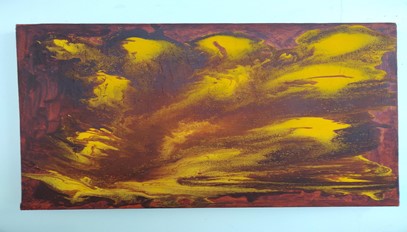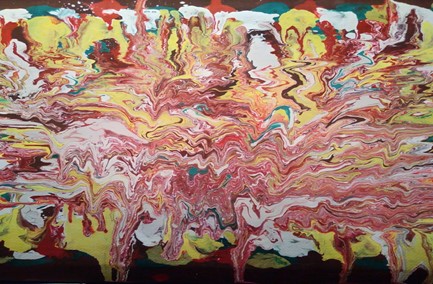for Alov Odoglu, by Jack Pascoe

“It’s always hopeless to talk about painting – one never does anything but talk around it.”
~ Francis Bacon
Alov is looking at his laptop on the little dark brown wooden school desk he found on the street. Drops of many colour shades are spattered around the edges of the worktop as well as the black metal legs. It’s four in the afternoon and he’s only been home for a couple of hours. His group counselling appointment at Toynbee Hall has gone well and it has helped to talk. Now he has some time to kill before his evening run.
He’s searching through testimonials from various scientific experts and sources on the internet. He finds an article suggesting that Covid-19 was made in a military laboratory in Wuhan as a retaliation to Trump’s hiking of tariffs on goods from China to America. His eyes start to narrow as he continues to scan through the paragraphs. Nobody seems to have been held accountable and the virus is still being classed as a natural phenomenon.
However the virus came about, he certainly believes that the British government is in panic mode and has been since March. Restrictions of freedoms have changed almost weekly, it seems. Now people are being fined for not wearing masks in the required places and the government has spent billions of pounds on a vaccine that they are not even sure works at all.
Despite the madness in the news, Alov’s area has remained much the same. He always kept himself to himself without the government telling him to stay indoors. Even before the outbreak, his contact with neighbours was limited to a quick ‘hello’ while passing each other on the stairs. The only real change to his routine is that he’s not able to go to his Wing Chun class on Commercial Road each week. Still, his indoor exercise and occasional evening runs have been keeping him fit. He checks the laptop clock and realises it’s about time to change into some comfortable clothes and leave his flat. He takes a look at one of the paintings propped up in the corner. The swirls and waves of paint widen in his eyes as he begins to inspect the composition. He wonders if a darker shade of yellow might have been better. Maybe the frustration and confusion he felt that day didn’t match his current mood. Nevertheless, his sense of pride and accomplishment comfort him on his way out of the door and on to the streets of London.
Alov moves through the cars, vans and buses of Commercial Road, heading north. It’s eleven in the morning and the sky is clear and bright. His grey hair is trimmed with the precision of a marine veteran’s. His thick black eyebrows are relaxed, creating an easy focus on his face. His running shoes beat on the tarmac as he heads north onto New Road and the bottom corners of his mothballed dark purple hoody start flapping freely as he breaks into a slight jog.
Passing by Cream’s Cafe he watches a younger lady putting on her face mask. Her long black hair and bright red nails make his chest rise and his shoulders straighten as he jogs. He wonders what kind of wife she would make, and whether she could make him happy, complete the missing part of his life.
She turns to meet his gaze through her thick black sunglasses. He acknowledges her with a comforting commuter’s smile before tilting his head back down and moving on.
As he reaches Whitechapel Road he looks left towards the gaudy towers of the City of London obscuring the sky. He takes a second to marvel at the skyline, walks briskly over the crossing, and picks up the pace on to Vallance Road. As he fixates on Repton’s Gym, the building that used to be the boxing gym where the Kray twins used to spar, he hears the sounds of an overground train heading over the graffiti spattered bridge towards Bethnal Green station.

As he hears the electric snap from the train lines, he recalls Nakhchivan and the tracks he used to live next to with his family. These were the lines that connected Southern Iran to neighbouring areas and were used for transporting oil and gas.
His father was the head director of the railway in the area where he also worked as a railway electrician. The communist regime had moved the family (consisting of mum, dad, six brothers and four sisters) to a building that had stood since 1901, known as the railway school. Here, they had eight rooms to share between them and only the equivalent of one hundred and eighty pounds a month as a salary to live on.
Alov would often spend his time helping out with the family’s farmland. They would grow vegetables and keep geese, sheep and buffalo. His mother would make yogurt from the buffalo milk, rich with oily content, his brothers and sisters would cut the sheep’s wool, occasionally slaughtering one of them for food, and during the summer they would collect straw from the fields in order to keep the animals fed through the winter period.
He was the third oldest in the family so he had a certain degree of authority over his younger siblings and was allowed to allocate certain tasks to other members of the family unit. Being a lover of agricultural life, this gave him a great sense of purpose. His other siblings were not so keen on the lifestyle. However, they were left with very little choice but to chip in with the rest.
Living under communist regime meant that the working person’s environment was extremely contained. Their life was the railway. Everything was so expensive that their meagre salary could never afford much more than the chance to clothe and feed themselves. When the regime collapsed in 1991, the communist leaders in the area managed to appoint themselves to the same positions of power they had been previously occupying and became more like a Mafia family. They paid the workers nothing and a few billionaires hoarded all the country’s accumulated wealth from oil and gas.
Alov’s immediate environment was a den of thieves. Where he lived, most people had the mentality of screwing other people over for their own monetary gain. The KGB would also recruit a lot of spies in the area due to the opportunities of transport over local borders. They would offer extra food and clothing for their families in the hope of getting the information they needed. It was all geared towards mistrust of neighbouring capitalist ‘enemies’ such as Turkey and Iran.
The poor people of the Nakhchivan district were used as nothing more than tools. Nobody was looking out for their personal interests, so most had to do whatever they could to maintain some sense of dignity.
At the entrance to Weaver’s Fields, Alov bends down to tie his shoelace. The perimeter of the field is protected by black iron fences and a six-foot hedgerow just inside of them. The grass is scattered with brown patches from people sitting in small groups of no more than six people (as permitted by the government). Gangs of lads gathered on the benches smoke spliffs and laugh loudly at each other’s stories. Neatly dressed hipsters wander the tarmac paths contemplating their new lockdown projects. White drones hover above the trees which shed brown and yellow leaves. Children hide behind bushes with sunshine smiles.
His shoulders are aligned perfectly as his torso bounces with every stride. His brow begins to bead with sweat as he observes the scene around him. It’s a wonderful melting pot of many countries, religions and backgrounds. He flicks past faces who pass by him like grainy photographs in an old leather-bound book.
During his time in lockdown, Alov has spent a lot of time watching TV and reading the newspaper in between his mandated exercise. One particular program about aliens has caught his imagination. It explained how aliens actually lived among us at one point and have been keeping tabs on us for years. However, alternative life forms are not ready to reveal themselves to humans yet due to our destructive and divisive nature. If we were introduced into their society, we would be the virus spawned to put infinitely more intelligent species at risk. He tries to assimilate the facts and lessons from the programme with all he sees around the park.
As he approaches the corner of the park, he notices a couple of old wooden pallets leaned up against the iron barred fence. He makes a mental note of their location for later use and jogs on.
Further along the path, he sees a young girl with long messy blonde hair and a winter coat. She’s carrying a sleeping bag wrapped around her arm in a bundle. Her face is covered in sores and scars and her eyes are fixed at the path directly in front of her. Her face is devoid of expression.
A pang of empathy begins to take over his thoughts and his pace slows to a brisk walk.

When Alov first arrived in Britain on November 26th 1996, after a year in Istanbul working in a shop and doing his best to earn a decent living, he only had a passport with a visa for documentation. He tried to find work while living in hostels with the little money he had saved, but was informed by legal aid, the Home Office and several businesses he applied for a job with that a work permit was needed.
This concept was completely alien to him. In the past, a passport would have met the requirements for securing a job. Now he was faced with a waiting game. Originally, he was told to wait five years until he could get the papers he required. However, when Tony Blair was voted into power in 1996 this was extended, making it eighteen years he’d have to wait to be able to work.
British bureaucracy was an animal he was made to fight in a cage for his dignity. Unable to find work or claim benefits, and now labelled an illegal immigrant, he was forced to live on the street hiding from the police and in fear of deportation. For eighteen years.
He slept in every London borough. Under bridges, in doorways, abandoned building sites, wherever would shelter him and keep him out of sight. Most of the time he spent alone. He stayed away from the drug users on the street so as not to get tied up in addiction. Rule of thumb on the street is that you share whatever you have with your peers. Alov didn’t want anybody to share their drugs with him. He wanted no part of it and also wanted to keep his record clean.
He would attend day centres for meals and hot showers whenever he could. During one of his visits to the Dellow Centre in Whitechapel, a place that helps the homeless community in a huge number of ways, he attended an art class where he tried his hand at impressionist art and became hooked. He would collect wood from the street in order to build canvasses so he could paint. Francis Bacon was a great influence and it was art that kept him sane throughout the ordeal.
Alov’s logic and moral compass remained intact. Several occasions would arise on the street that could have been negative for him, but he rose above them. Alov’s instincts were to kill or be killed, but he knew deep down that ultimately this would cause more problems for him.
On September 5th 2013, Alov finally got a work permit with the help of an immigration lawyer. In November of 2014, he was given a home in Aldgate that he could finally call a base. However, this did not stop the stigma of immigration. Because of his name, most businesses preferred John Smith or Peter Green despite his qualifications and the dues he had paid. There was also the issue of experience and age. He couldn’t gain experience unless somebody gave him a chance in the first place and now, moving into his sixties, he was not classed as a desirable candidate by any company.
Through all these adversities, Alov kept his dignity and morality. He was well aware that survival of the fittest was a real thing and not just a Darwinian quotation. He had lived it under the communist regime, under the inhumane British legislation process and now, in 2020, in the midst of a global pandemic. This was a man who accepted his ill fate, adapted to his environment, and did his best to come out on top regardless of consequence.
Alov picks up the pace again as he jogs back down Vallance Road towards the home he has fought to find and keep.
He unlocks the door of his flat, where piles of his paintings are stacked against the walls and all over the floor. He recalls the pallets he saw in the park and makes plans to go back and collect them. The wood will be useful as a canvas for his next piece of work.
After a quick shower and a change of clothes, he sits down in front of the TV and opens his copy of the Evening Standard. He exhales and relaxes into the daily news stories about revised lockdown restrictions and the underbelly of London, which he had once hidden inside. He begins to daydream and make plans about life with his future partner, who will bear his children and fulfil his sincere urge to be a father. A flash of inspiration lights up his mind, and another idea for a painting begins to take form.

